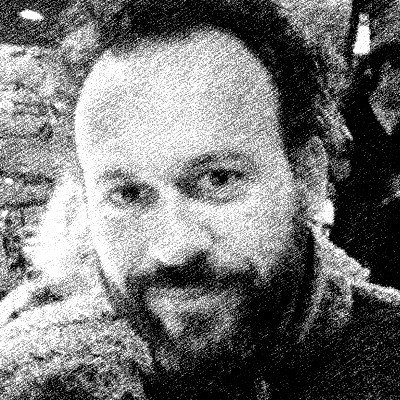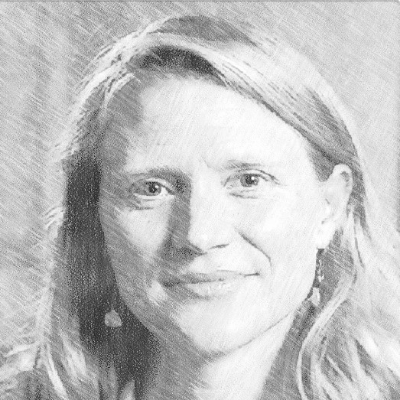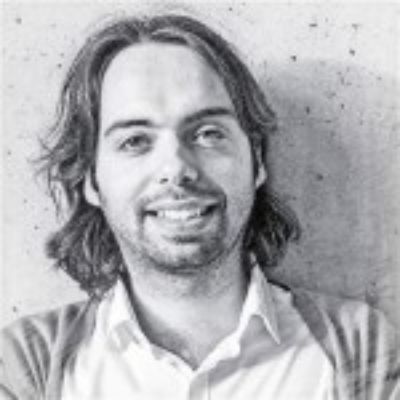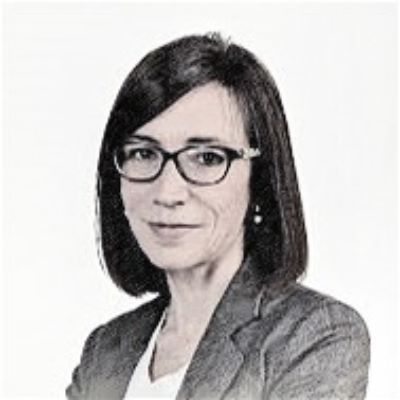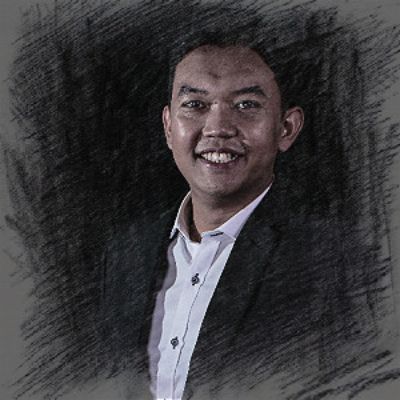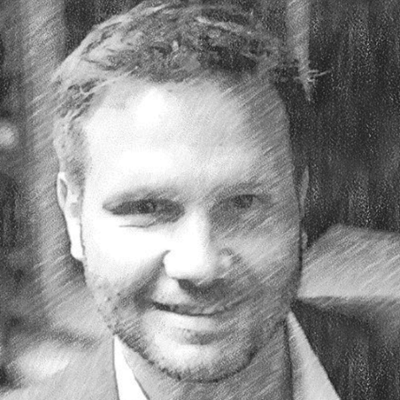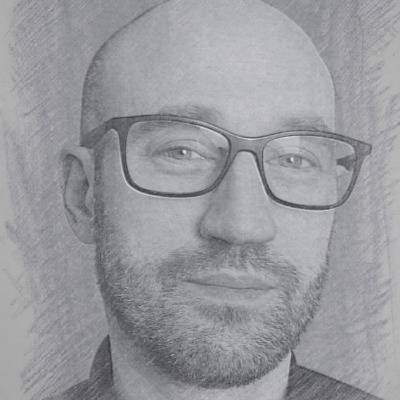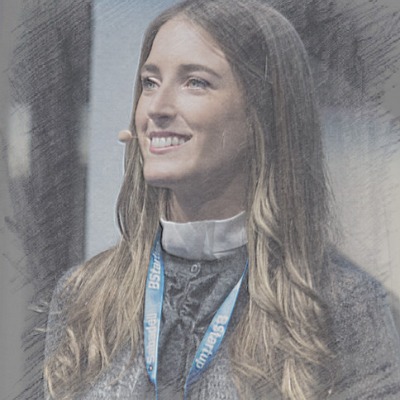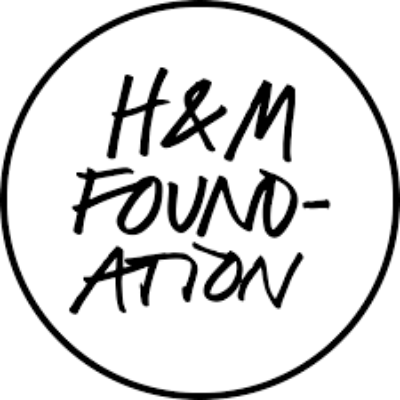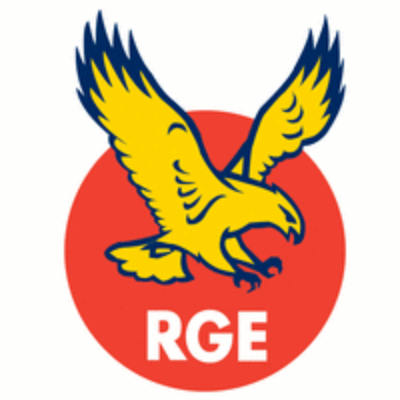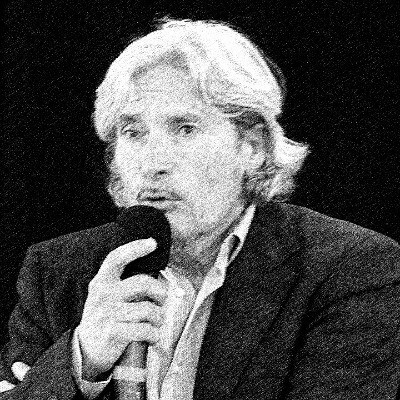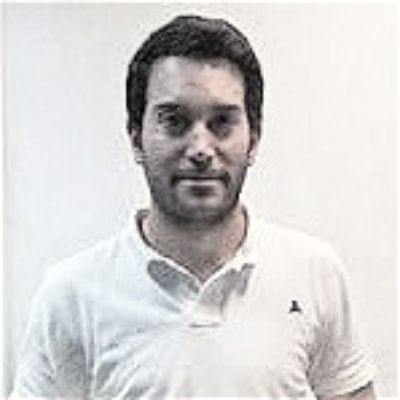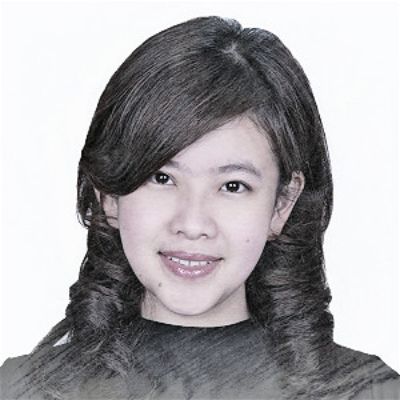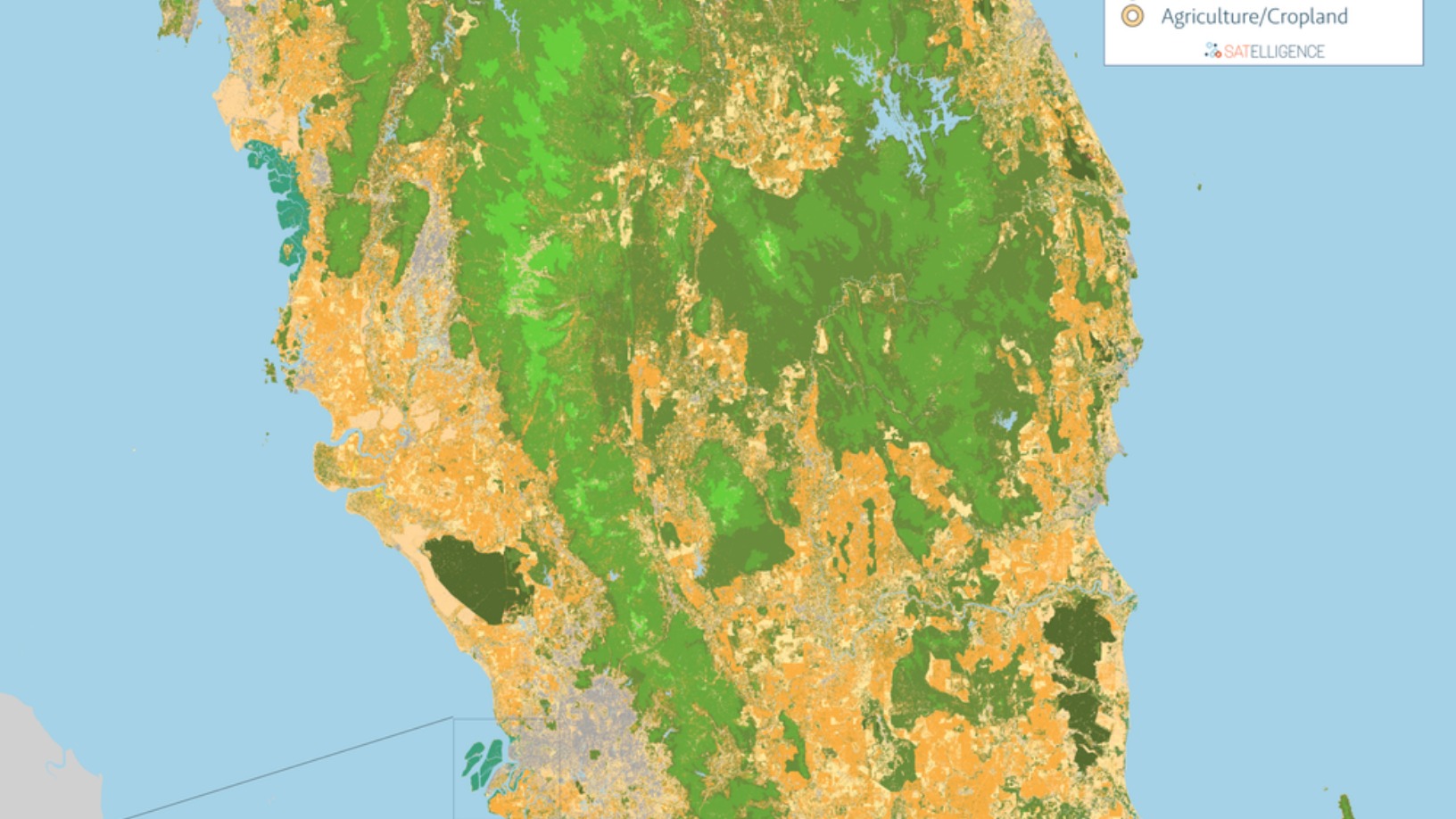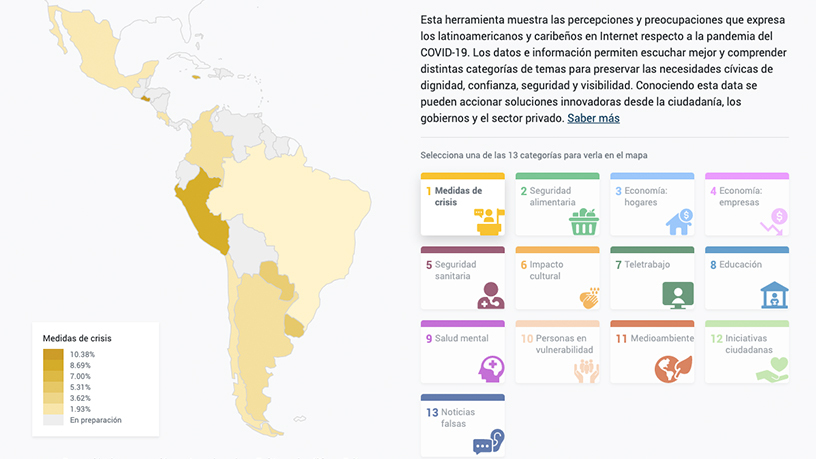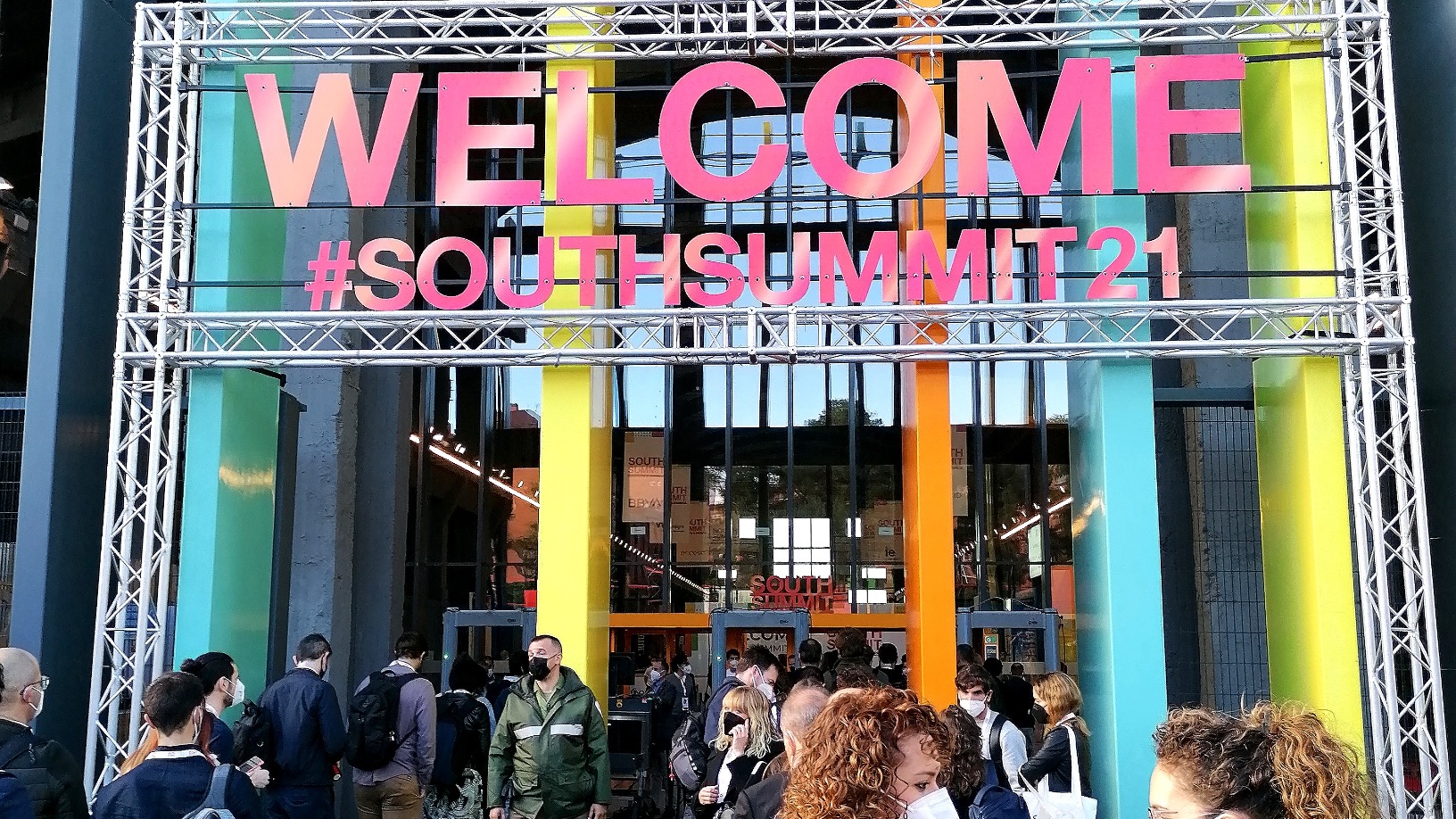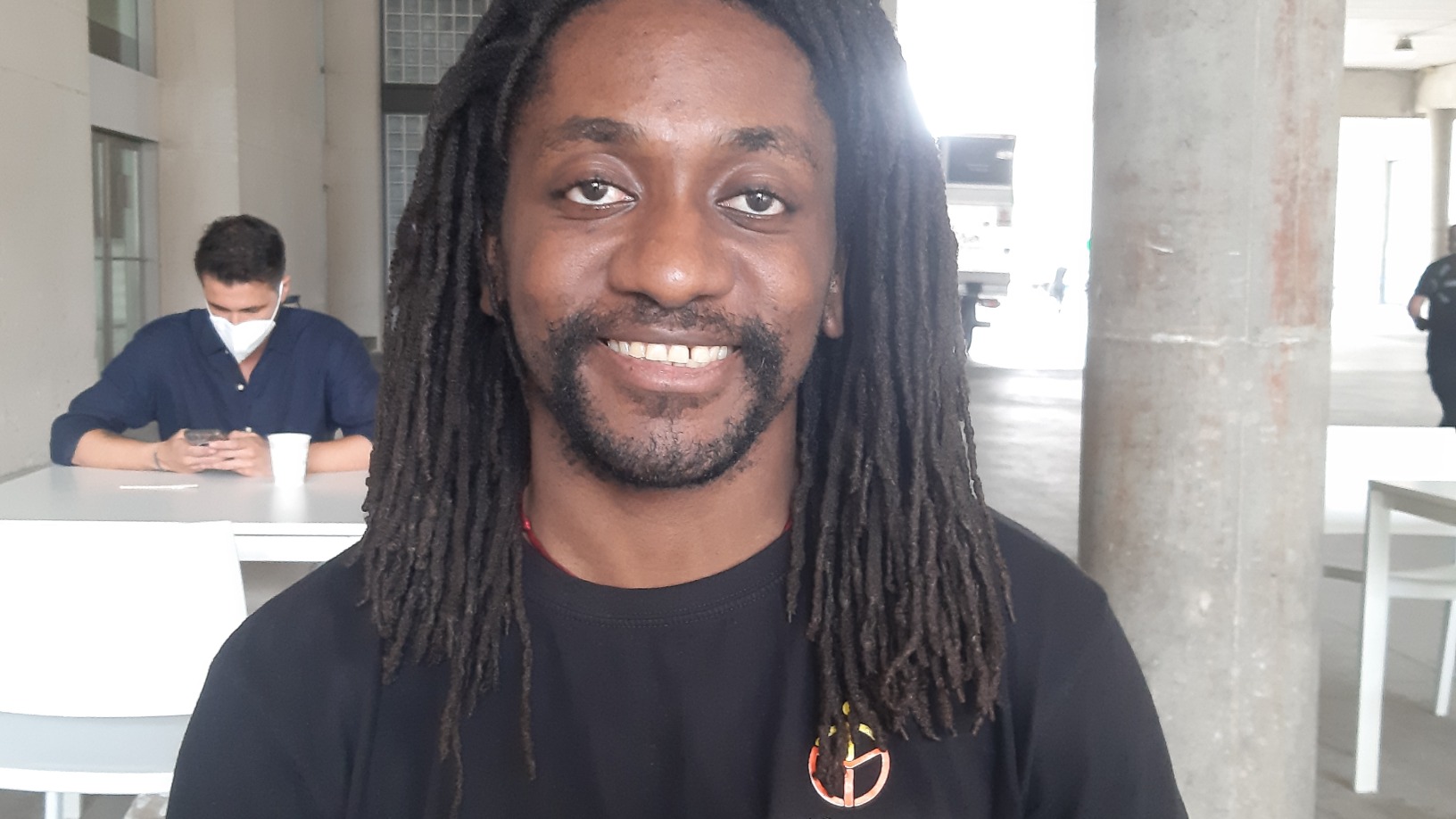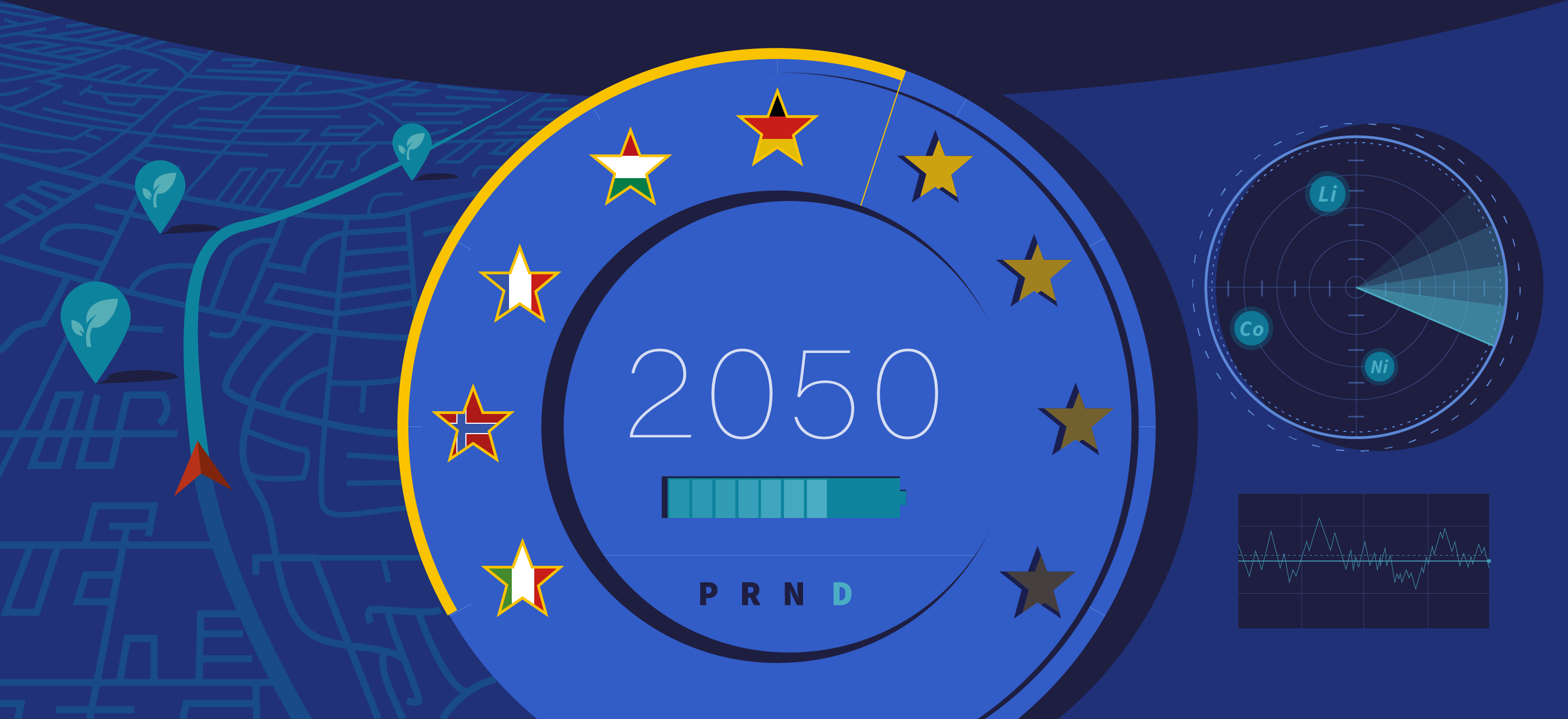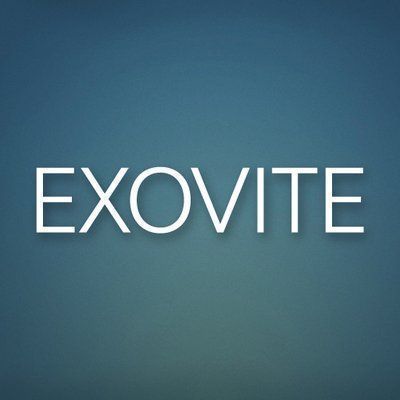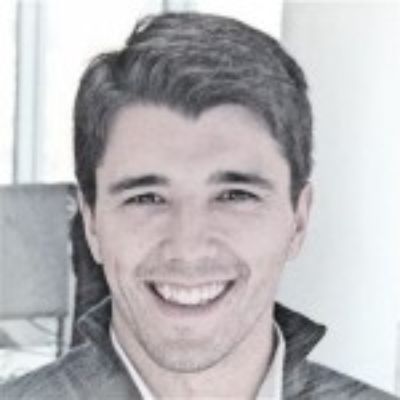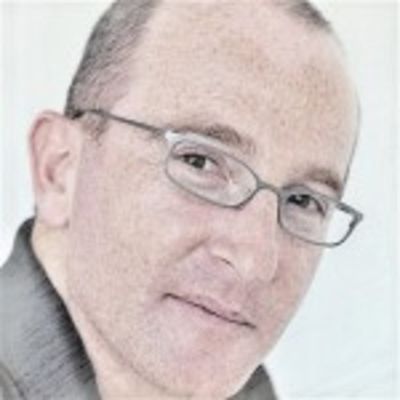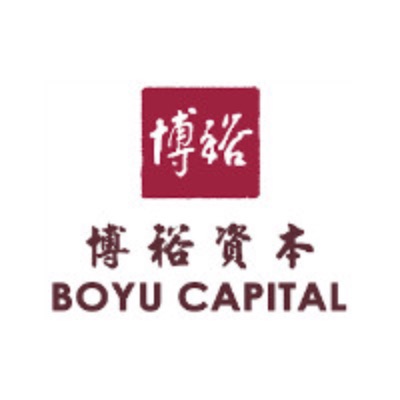Inter-American Development Bank
DATABASE (562)
ARTICLES (494)
CFO and co-founder of Scoobic Urban Mobility
José Enrique Díaz Buzón graduated in law at the University of Seville in 1999. He has a qualification in EU law, and a master’s in business consultancy. In 2005, he also studied labor relations at IE Business School in Madrid.In 1999, Díaz began practicing as a lawyer, specializing in commercial and corporate law and business consultancy. In 2016, he became the CFO, business development manager and co-founder of Scoobic Urban Mobility. The Spanish mobility startup and the co-founding team’s Passion Motorbike Factory aim to provide three-wheeled EVs and sustainable last-mile delivery solutions.
José Enrique Díaz Buzón graduated in law at the University of Seville in 1999. He has a qualification in EU law, and a master’s in business consultancy. In 2005, he also studied labor relations at IE Business School in Madrid.In 1999, Díaz began practicing as a lawyer, specializing in commercial and corporate law and business consultancy. In 2016, he became the CFO, business development manager and co-founder of Scoobic Urban Mobility. The Spanish mobility startup and the co-founding team’s Passion Motorbike Factory aim to provide three-wheeled EVs and sustainable last-mile delivery solutions.
Goat Capital is a venture capital fund was set up by video livestreamer Justin.tv and Twitch co-founder Justin Kan and Robin Chan, also an angel investor and entrepreneur. Chan met Kan while working at Verizon Wireless when Justin.tv was being launched. Both have since become private investors for over 10 years, with early investments including Twitter, Xiaomi, Bird, Uber and Square. Established in September 2020, the fund’s name was inspired by the goat because good startup founders need to be agile and resilient to survive and be successful, according to Kan.Kan was also an early investor of Indonesian payment gateway Xendit before Goat Capital joined Xendit’s $150m Series C round in September 2021. Goat Capital’s portfolio includes corporate credit card startup Kodo, Indian neobank Bueno Finance, carbon capture developers Holy Grail and web development tool Spore. The hybrid incubator and VC fund has already secured $25m and aims to raise a total of $40m to invest in diverse sectors like digital health, e-commerce, robotics, climate change and gaming entertainment. Funding per startup would range from $500,000 to $3m.
Goat Capital is a venture capital fund was set up by video livestreamer Justin.tv and Twitch co-founder Justin Kan and Robin Chan, also an angel investor and entrepreneur. Chan met Kan while working at Verizon Wireless when Justin.tv was being launched. Both have since become private investors for over 10 years, with early investments including Twitter, Xiaomi, Bird, Uber and Square. Established in September 2020, the fund’s name was inspired by the goat because good startup founders need to be agile and resilient to survive and be successful, according to Kan.Kan was also an early investor of Indonesian payment gateway Xendit before Goat Capital joined Xendit’s $150m Series C round in September 2021. Goat Capital’s portfolio includes corporate credit card startup Kodo, Indian neobank Bueno Finance, carbon capture developers Holy Grail and web development tool Spore. The hybrid incubator and VC fund has already secured $25m and aims to raise a total of $40m to invest in diverse sectors like digital health, e-commerce, robotics, climate change and gaming entertainment. Funding per startup would range from $500,000 to $3m.
Co-CEO and co-founder of Pula
Dutch-born Rosa Goslinga has spent most of her career working in Africa and speaks five languages, including Swahili. She graduated in business, economics and international development at the University of Amsterdam in 2004. She also completed a master’s in political economy of development at the School for Oriental and African Studies (SOAS) in London in 2005.In 2006, she worked as an economist at the Ministry of Agriculture and Animal Resources in Rwanda where she realized there was an urgent need for small-scale farming insurance to protect the local farmers’ livelihoods against natural hazards.In 2008, she joined Syngenta Foundation for Sustainable Agriculture (SFSA) in Kenya, where she initiated a pilot Kilimo Salama in Nairobi as program director. The program was a success, starting with 185 farmers taking up index insurance and growing to be the largest in Africa with over 185,000 participants. Goslinga also met and started working with Thomas Njeru, the lead actuary for UAP Insurance for the Kilimo project.In 2013, with investors backing her project, she developed and patented a system and method for providing a site-related weather insurance contract. She left SFSA in 2014 and went on to set up Kenya’s pioneering insurtech Pula with Njeru as co-founder in 2015.Both are now co-CEOs of the Nairobi-based startup, education and helping over 4m small-scale farmers to protect their livelihoods from environmental hazards with tailor-made micro-finance and insurance products.
Dutch-born Rosa Goslinga has spent most of her career working in Africa and speaks five languages, including Swahili. She graduated in business, economics and international development at the University of Amsterdam in 2004. She also completed a master’s in political economy of development at the School for Oriental and African Studies (SOAS) in London in 2005.In 2006, she worked as an economist at the Ministry of Agriculture and Animal Resources in Rwanda where she realized there was an urgent need for small-scale farming insurance to protect the local farmers’ livelihoods against natural hazards.In 2008, she joined Syngenta Foundation for Sustainable Agriculture (SFSA) in Kenya, where she initiated a pilot Kilimo Salama in Nairobi as program director. The program was a success, starting with 185 farmers taking up index insurance and growing to be the largest in Africa with over 185,000 participants. Goslinga also met and started working with Thomas Njeru, the lead actuary for UAP Insurance for the Kilimo project.In 2013, with investors backing her project, she developed and patented a system and method for providing a site-related weather insurance contract. She left SFSA in 2014 and went on to set up Kenya’s pioneering insurtech Pula with Njeru as co-founder in 2015.Both are now co-CEOs of the Nairobi-based startup, education and helping over 4m small-scale farmers to protect their livelihoods from environmental hazards with tailor-made micro-finance and insurance products.
Co-founder and Head of Communication and Design of CoolFarm
João Igor graduated with a degree in Communication, Design and Media Studies from the School of Education of Coimbra (ESEC) in 2008. The digital marketer worked for four years at Imagemplus until 2012, when he co-founded mobile software development firm CoolApps, together with CoolFarm co-founders Liliana Marques and Eduardo Esteves. In July 2014, he co-founded indoor farming agtech CoolFarm and worked as marketing and communications manager until June 2018. He was communications manager at relocation startup Moviinn for one year until 2015. Currently based in Lisbon, he now a marketing communications specialist with London's HR recruitment firm Transformify.
João Igor graduated with a degree in Communication, Design and Media Studies from the School of Education of Coimbra (ESEC) in 2008. The digital marketer worked for four years at Imagemplus until 2012, when he co-founded mobile software development firm CoolApps, together with CoolFarm co-founders Liliana Marques and Eduardo Esteves. In July 2014, he co-founded indoor farming agtech CoolFarm and worked as marketing and communications manager until June 2018. He was communications manager at relocation startup Moviinn for one year until 2015. Currently based in Lisbon, he now a marketing communications specialist with London's HR recruitment firm Transformify.
COO of NPAW
Sergi Vergés Gasso is co-founder and COO at NPAW, where he oversees operations, sales engineering and planning. In 2008, he joined fellow entrepreneur and co-founder Ferran Gutiérrez Vilaró to establish NPAW and Wuapi.com, as well as Wuaki.TV, later RakutenTV, in 2010. Vergés was previously a junior developer at Seidor, development manager at Sclipo, analyst programmer at Mango and senior consultant at Oracle.
Sergi Vergés Gasso is co-founder and COO at NPAW, where he oversees operations, sales engineering and planning. In 2008, he joined fellow entrepreneur and co-founder Ferran Gutiérrez Vilaró to establish NPAW and Wuapi.com, as well as Wuaki.TV, later RakutenTV, in 2010. Vergés was previously a junior developer at Seidor, development manager at Sclipo, analyst programmer at Mango and senior consultant at Oracle.
CEO of Acuilae
Cristina Sánchez López is a co-founder of AI software development company Acuilae. She has been Acuilae's CEO since April 2017 and is credited for creating ETHYKA, Acuilae's flagship product, which draws from her expertise as a data scientist. Sánchez had previously spent almost two decades working in the Accenture Group for large clients in Spain. She holds degrees in Statistics and Software Engineering from Madrid's Complutense University.
Cristina Sánchez López is a co-founder of AI software development company Acuilae. She has been Acuilae's CEO since April 2017 and is credited for creating ETHYKA, Acuilae's flagship product, which draws from her expertise as a data scientist. Sánchez had previously spent almost two decades working in the Accenture Group for large clients in Spain. She holds degrees in Statistics and Software Engineering from Madrid's Complutense University.
Co-founder and CEO of Qiscus
Delta Purna Widyangga graduated in 2009 with a bachelor's degree in Electrical and Electronic Engineering from Nanyang Technological University (NTU) Singapore. Specializing in computer engineering, he has worked as a software engineer at Accenture Technology Solutions and became a consultant with ecenta AG, a company specializing in SAP product consultancy.In 2011, Delta co-founded digital agency 1.618 in Singapore, exiting the startup in 2017. He also became co-CTO of Qiscus in 2013 to manage the enterprise side of the business, while CTO Evan Purnama focused on product development. In 2015, Delta became the CEO after co-founder Amin Nordin left Qiscus.
Delta Purna Widyangga graduated in 2009 with a bachelor's degree in Electrical and Electronic Engineering from Nanyang Technological University (NTU) Singapore. Specializing in computer engineering, he has worked as a software engineer at Accenture Technology Solutions and became a consultant with ecenta AG, a company specializing in SAP product consultancy.In 2011, Delta co-founded digital agency 1.618 in Singapore, exiting the startup in 2017. He also became co-CTO of Qiscus in 2013 to manage the enterprise side of the business, while CTO Evan Purnama focused on product development. In 2015, Delta became the CEO after co-founder Amin Nordin left Qiscus.
Chief Business Development Officer and co-founder of Modulous Tech
Romill Bettany is co-founder and Chief Business Development Officer at UK-based Modulous, the first end-to-end generative design and delivery solution for affordable, sustainable and modulized housing, where he has worked since 2018. He was simultaneously director and co-founder at engineering consultancy Optimise, based in London and Dubai, where he worked 2012-20, and where the concept for Modulous was conceived. Prior to this, he worked for nine years at engineers Ramboll, part of the WhitbyBird group and was previously was a fire safety engineer at Australian engineering consultant WSP for almost four years. Bettany has worked on building projects globally ranging from airports to theaters.
Romill Bettany is co-founder and Chief Business Development Officer at UK-based Modulous, the first end-to-end generative design and delivery solution for affordable, sustainable and modulized housing, where he has worked since 2018. He was simultaneously director and co-founder at engineering consultancy Optimise, based in London and Dubai, where he worked 2012-20, and where the concept for Modulous was conceived. Prior to this, he worked for nine years at engineers Ramboll, part of the WhitbyBird group and was previously was a fire safety engineer at Australian engineering consultant WSP for almost four years. Bettany has worked on building projects globally ranging from airports to theaters.
Co-founder, CTO of Bodyswaps
Tom Szirtes is co-founder and CTO at UK-based VR edtech for soft-skills training Bodyswaps, where he has worked since the start of 2020. Prior to that, he was managing director at London-based AR and VR design startup Mbryonic, where he worked for almost seven years. Before Mbryonic, he was project manager at Orange for almost three years, where he worked in gamification at the giant’s R&D lab in London.Szirtes also worked for six years at SEGA Europe in game development and as a developer and a contractor in other organizations. He holds a bachelor’s degree in Computer Science from the University of Bristol in the UK.
Tom Szirtes is co-founder and CTO at UK-based VR edtech for soft-skills training Bodyswaps, where he has worked since the start of 2020. Prior to that, he was managing director at London-based AR and VR design startup Mbryonic, where he worked for almost seven years. Before Mbryonic, he was project manager at Orange for almost three years, where he worked in gamification at the giant’s R&D lab in London.Szirtes also worked for six years at SEGA Europe in game development and as a developer and a contractor in other organizations. He holds a bachelor’s degree in Computer Science from the University of Bristol in the UK.
Co-founder, CEO of RatedPower
Andrea Barber is the Spanish co-founder and CEO of RatedPower, which produces software to automate the design of solar power plants. She has worked there since 2017. She is simultaneously co-founder and podcaster at Vostok 6, a Spanish podcast about women in business. Prior to RatedPower, Andrea spent six years working in business development at renewable energy company Solida, based largely in Brazil and Chile, where she had the idea for her later startup. She also spent time in Brazil at the Spanish Chamber of Business and Industry, and at Henkel in San Francisco, working in business intelligence and marketing. She holds a degree in Business Management from Carlos III University of Madrid.
Andrea Barber is the Spanish co-founder and CEO of RatedPower, which produces software to automate the design of solar power plants. She has worked there since 2017. She is simultaneously co-founder and podcaster at Vostok 6, a Spanish podcast about women in business. Prior to RatedPower, Andrea spent six years working in business development at renewable energy company Solida, based largely in Brazil and Chile, where she had the idea for her later startup. She also spent time in Brazil at the Spanish Chamber of Business and Industry, and at Henkel in San Francisco, working in business intelligence and marketing. She holds a degree in Business Management from Carlos III University of Madrid.
H&M Foundation is a non-profit foundation established in 2013. It is privately funded by the Stefan Persson family, the founders and major shareholders of the H&M Group, who have donated SEK 1.5 billion to it to date. The foundation aims to help accelerate progress towards the UN Sustainable Development Goals 2030, by developing, funding and sharing solutions to address the world’s most urgent issues. It has a particular focus on promoting a planet-positive fashion industry and on building inclusive societies.Tackling mostly challenges associated with the fast fashion industry and its supply chain, H&M Foundation advocates for more sustainable practices across the fashion value chain and more inclusive business practices. The foundation is also actively involved in providing emergency relief for natural disasters or pandemics. It also aims to encourage innovation that promotes social change and sustainability. To this end, it provides startups support in accelerating and scale new technologies. It also runs the Global Change Award. Dubbed the Nobel Prize of fashion, this aims to recognise disruptive innovations that have the potential to make fashion more sustainable, and transform the way garments are designed, produced, shipped, bought, used and recycled.
H&M Foundation is a non-profit foundation established in 2013. It is privately funded by the Stefan Persson family, the founders and major shareholders of the H&M Group, who have donated SEK 1.5 billion to it to date. The foundation aims to help accelerate progress towards the UN Sustainable Development Goals 2030, by developing, funding and sharing solutions to address the world’s most urgent issues. It has a particular focus on promoting a planet-positive fashion industry and on building inclusive societies.Tackling mostly challenges associated with the fast fashion industry and its supply chain, H&M Foundation advocates for more sustainable practices across the fashion value chain and more inclusive business practices. The foundation is also actively involved in providing emergency relief for natural disasters or pandemics. It also aims to encourage innovation that promotes social change and sustainability. To this end, it provides startups support in accelerating and scale new technologies. It also runs the Global Change Award. Dubbed the Nobel Prize of fashion, this aims to recognise disruptive innovations that have the potential to make fashion more sustainable, and transform the way garments are designed, produced, shipped, bought, used and recycled.
Royal Golden Eagle (RGE) is an industrial group owned by Indonesian tycoon Sukanto Tanoto. It employs 60,000 people worldwide with assets worth over $20bn. Tanoto started his business empire in 1967 as a supplier of spare parts to oil and construction companies in Indonesia. He went on to invest in oil palm plantations in 1979. Since 1985, his group companies have been managing 30,000 acres of oil palm trees each year across a total land area of 160,000 hectares.Headquartered in Singapore, RGE has interests in diverse sectors like paper palm oil, viscose, asset management, real estate, construction and energy. RGE owns the world’s largest viscose producer Sateri, Asia Pacific Rayon and energy firm Pacific Oil & Gas. It is also the owner of the Asia Pacific Resources International Holdings Limited (APRIL), one of the world’s largest pulp and paper mills. The Rainforest Action Network and other NGOs like Greenpeace and the WWF have put considerable pressure on the RGE group’s unsustainable operations such as the destruction of rainforests by APRIL. In 2019, RGE announced plans to invest $200m in cellulosic textile fiber research and development over a period of 10 years. Projects will include the scaling up of proven clean technology in fiber manufacturing, bringing pilot-scale production to commercial scale and R&D in emerging frontier solutions.
Royal Golden Eagle (RGE) is an industrial group owned by Indonesian tycoon Sukanto Tanoto. It employs 60,000 people worldwide with assets worth over $20bn. Tanoto started his business empire in 1967 as a supplier of spare parts to oil and construction companies in Indonesia. He went on to invest in oil palm plantations in 1979. Since 1985, his group companies have been managing 30,000 acres of oil palm trees each year across a total land area of 160,000 hectares.Headquartered in Singapore, RGE has interests in diverse sectors like paper palm oil, viscose, asset management, real estate, construction and energy. RGE owns the world’s largest viscose producer Sateri, Asia Pacific Rayon and energy firm Pacific Oil & Gas. It is also the owner of the Asia Pacific Resources International Holdings Limited (APRIL), one of the world’s largest pulp and paper mills. The Rainforest Action Network and other NGOs like Greenpeace and the WWF have put considerable pressure on the RGE group’s unsustainable operations such as the destruction of rainforests by APRIL. In 2019, RGE announced plans to invest $200m in cellulosic textile fiber research and development over a period of 10 years. Projects will include the scaling up of proven clean technology in fiber manufacturing, bringing pilot-scale production to commercial scale and R&D in emerging frontier solutions.
CTO and co-founder of Everimpact
Alain Retière is CTO and co-founder of Everimpact, a GHG monitoring company that uses satellites, ground sensors, AI and machine learning to deliver more accurate carbon emissions data to public bodies, municipalities, and businesses.Retière has rich experience in sustainable development, climate change, as well as satellite technology. He was previously an agro-economist and senior scientific advisor at sustainable development organizations, public bodies, and international organisations, with three decades of field experience across 120 countries. In the course of his career, Retière spent a total of 13 years as director of two satellite-related agencies under the UN. This included three years managing CLIMSAT, a specialized center under the UNDP helping local government bodies assess the impact of climate change by using satellite and geo-spatial data, as well as 10 years at the helm of UNOSAT, the UN emergency satellite service. For his service at UNOSAT, he received the UN21 Award from UN Secretary-General Kofi Annan in 2005.Retière graduated from Groupe Ecole supérieure d'Agriculture d'Angers and holds a postgraduate degree from Université Pierre et Marie Curie, which is now part of Sorbonne University.
Alain Retière is CTO and co-founder of Everimpact, a GHG monitoring company that uses satellites, ground sensors, AI and machine learning to deliver more accurate carbon emissions data to public bodies, municipalities, and businesses.Retière has rich experience in sustainable development, climate change, as well as satellite technology. He was previously an agro-economist and senior scientific advisor at sustainable development organizations, public bodies, and international organisations, with three decades of field experience across 120 countries. In the course of his career, Retière spent a total of 13 years as director of two satellite-related agencies under the UN. This included three years managing CLIMSAT, a specialized center under the UNDP helping local government bodies assess the impact of climate change by using satellite and geo-spatial data, as well as 10 years at the helm of UNOSAT, the UN emergency satellite service. For his service at UNOSAT, he received the UN21 Award from UN Secretary-General Kofi Annan in 2005.Retière graduated from Groupe Ecole supérieure d'Agriculture d'Angers and holds a postgraduate degree from Université Pierre et Marie Curie, which is now part of Sorbonne University.
Co-founder and CPO of Billin
As the co-founder and CPO of Billin, Diego Goya Quijano is responsible for the IT team, business and funding strategies. After graduating in Business Administration at CUNEF in 2010, he studied English for a year in California, USA. His first entrepreneurial venture was in 2009 when he co-founded Deyese Soluciones (D+S), a company specializing in cost optimization. He then worked at Smartgroup Telecomunicaciones for almost two years before co-founding Billin in 2013. He has since attended various courses relating to Venture Capital, M&A and Financing Operations at IEB. He then specialized in web development at Ironhack.
As the co-founder and CPO of Billin, Diego Goya Quijano is responsible for the IT team, business and funding strategies. After graduating in Business Administration at CUNEF in 2010, he studied English for a year in California, USA. His first entrepreneurial venture was in 2009 when he co-founded Deyese Soluciones (D+S), a company specializing in cost optimization. He then worked at Smartgroup Telecomunicaciones for almost two years before co-founding Billin in 2013. He has since attended various courses relating to Venture Capital, M&A and Financing Operations at IEB. He then specialized in web development at Ironhack.
Founder and CEO of Catapa
After graduating from Universitas Bina Nusantara's dual degree program in 2012, Stefanie Suanita went to work for GDP Venture, part of the Djarum Group in Indonesia. She specialized in product management and joined GDP Labs in 2015 as senior principal product manager for the internal research and venture building arm. In 2017, she founded Catapa and became the CEO of the HRtech startup that was internally incubated at GDP Labs. The Information Systems and Management graduate had two years' experience in HR as supervisor of internationalization and people career development at her alma mater BINUS University.
After graduating from Universitas Bina Nusantara's dual degree program in 2012, Stefanie Suanita went to work for GDP Venture, part of the Djarum Group in Indonesia. She specialized in product management and joined GDP Labs in 2015 as senior principal product manager for the internal research and venture building arm. In 2017, she founded Catapa and became the CEO of the HRtech startup that was internally incubated at GDP Labs. The Information Systems and Management graduate had two years' experience in HR as supervisor of internationalization and people career development at her alma mater BINUS University.
Satelligence: Satellite data and AI helping corporate giants source commodities more sustainably
Satelligence monitors environmental risks across 6bn hectares of mostly tropical forest for high-profile clients such as Pepsico, Nestlé and Unilever
Civiclytics is a Covid-19 information crowdsourcing and sharing platform supported by the Inter-American Development Bank, as Citibeats reports increased demand for its data analytics and actionable insights
South Summit wants to go global, as it launches Brazilian chapter
CEO Marta del Castillo on South Summit’s LatAm, Asia expansion plans; its net-zero pledge; her new role as co-head to further drive growth and more
SOURCE Global's solar-run panels turn air into drinking water
The US startup’s adapted solar panels extract water vapor from the air to produce potable water, a vital resource for distressed communities in disaster zones and remote areas
SoccerDream: World's first VR soccer training platform to launch in China, US
SoccerDream uses virtual reality to boost trainee players' performance on the field by 36% compared to their peers
Citibeats, a social trends monitoring tool for governments and businesses, wins €1.4m funding
Citibeats tracks and analyzes what the public is saying online in any language; wants to boost its presence in LatAm and Asia
Jungle.ai: Tapping data and AI to prevent outages and breakdowns
Forewarned is forearmed. Performance predictions by Jungle.ai can help save billions of dollars and hours of frustration caused by sudden power failures
No bank account? In Indonesia, you can still shop online
Indonesian startups are racing to serve the millions of consumers that banks haven’t reached. Here’s a look at some of the leading players, their innovations and how they have redefined the market
Teliman: Driver-centered mobility model assisting Malian development
The startup addresses a basic necessity with its on-demand ride-hailing services while supporting the personal and economic progress of its drivers, including empowering women
Billin offers unlimited free e-invoicing services to SMEs and freelancers
Offering automated online invoice generating, sharing, tracking and payments, the Spanish fintech wants to become the billing Dropbox for businesses worldwide
Impact investing: Spanish startups with a cause and the ecosystem backing them
As more thought and money go into socially and environmentally responsible projects, Spanish entrepreneurs, investors and big businesses are following suit
Beemine Lab: Nurturing the fast-growing CBD cosmetics market
The first biotech company in Spain to produce CBD-rich cosmetics, The Beemine Lab is in a market poised to reach nearly $1bn by 2024, or 10% of the total skincare market
EXCLUSIVE: Mexico’s Trendier invests in Chicfy as part of €1 million deal
Spain's most popular secondhand fashion marketplace and media darling gets lifeline as it struggles financially to stay afloat
Glovo’s 2018 rollercoaster ride
The year saw the delivery giant dealing with labor unions, diversification and international expansion
Europe ramps up development of local EV battery sector in race to zero emissions
Startups, automakers jostle or unite to ride the fast-growing EV battery market, as the EU pumps billions into developing its own value chain, to cut reliance on imports
Sorry, we couldn’t find any matches for“Inter-American Development Bank”.
